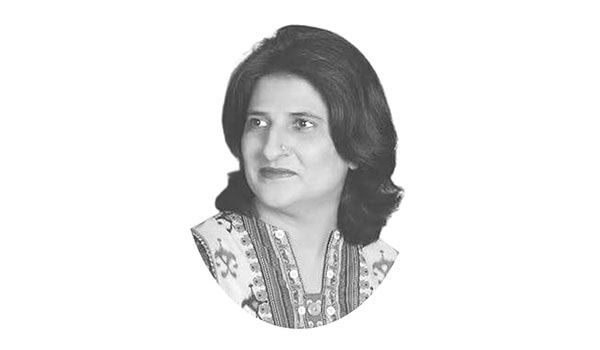Sensibility versus hostility
ON 24 September 2022, the European Commission allocated €600 million from European Development Fund (EDF) to finance immediate humanitarian food aid to the most vulnerable countries in Africa, the Caribbean and the Pacific.
This decision is a positive move of not letting humanity alone face the hunger disaster that had been triggered by the Russia-Ukraine War.
The world realizes today that the political decision of the West in engaging war with Russia via Ukraine has created a food and energy crisis in an already fatigued world and the EU also understands it very well.
The President of the 77th United Nations General Assembly (UNGA) Csaba Kõrösi in his address to the UNGA Session 2022, said “We are living in a permanent state of humanitarian emergency”.
First Covid-19 pandemic exposed the modern world’s vulnerabilities and then the Ukraine-Russia conflict gave the obvious picture of the truth that problems the world is facing today cannot be bounded in a geographical location, problems are global and need global solutions.
Ukraine and Russia are the prime sources of global energy and food, their military engagement put the rest of the world at risk, especially the most endangered countries already suffering from hunger are now at survival risk.
According to EU Commissioner for International Partnerships Jutta Urpilainen the EU’s swift and comprehensive response to the current food insecurity in several vulnerable partner countries of the African, Caribbean, and Pacific areas demonstrated strong solidarity towards partners, in particular in Africa.
It is true that this EU helps shoulder the consequences being felt worldwide due to the Russia-Ukraine War.
There is no doubt that the Russian-Ukraine conflict dramatically worsened the situation for the world that is already facing the effects of armed conflicts, climate change, the COVID-19 pandemic, and famine.
This initiative of supporting vulnerable countries is highly appreciable but has a grey side too, no matter how strong the EU’s economy is but it has a threshold and global compensation of political decisions can have heavy domestic costs.
It is not a secret that Ukraine and Russia are the food baskets of the world and time has also tested that US-instigated sanctions have never proven fruitful for Europe.
Therefore, backfiring must not surprise the EU, however, mitigating global crises with economic help is not a sustainable choice.
I strongly believe that EU member states knew what would be the impact of throwing Ukraine into war though everybody in Brussels could understand the global consequences of this war yet everybody decided to give another “Afghanistan” to Russia forgetting the reality of what the Afghanistan war cost to the humanity in general and particularly to the West where radicalization changed fabrics of western societies.
Afghanistan war was not economically a disaster for Europe or the world for that matter but the Russia-Ukraine conflict is surely a huge disaster standing at the doorstep.
According to estimation, rich countries spend some $6bn of tax money a year on disaster relief and development aid overseas, while each new earthquake, famine or tidal wave can attract 1,000 aid organizations but I do not see any aid organization raising voice that Russia-Ukraine War is inviting unprecedented hunger soon all over the world and even Europe has faced the brunt of it.
According to the latest chart of “Euro Area Inflation and its main components” released by the European External Action Service (EEAS), the all-item inflation had a dip between February 2019-February 2020 when it went down to minus 10 percent but started rising up since then and had reached over six percent while energy price is over 30 per cent higher by February 2022.
This is a huge increase that not everybody in Europe can sustain for a long. Economists indicate that the Ukraine conflict is the third asymmetric shock that the EU is facing in the last two decades.
The global economic meltdown of 2008 dented the EU economy and we had seen the Eurozone crisis and then we had seen the impact of the COVID-19 pandemic.
Between Eurozone economic crisis and the COVID-19 impact, the EU had to accommodate thousands of refugees from the Middle East and Afghanistan.
In simple words, the EU has been under stress since the beginning of the 21st century and has been paying a heavy cost.
To my understanding, the refugee crisis and the Ukraine conflict are directly linked with US policies and the EU pays for what the US does all over the world.
I think the young generation of Europe should not pay for what Washington plans for Europe and I believe Brussels can protect its interests without annoying Washington by avoiding US-led adventurism.
—The writer is a Prague-based author, columnist and foreign affairs expert who writes for national and international media.










